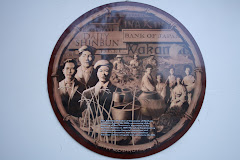
Leaders from the two failed newspapers in San Francisco's Japantown held a community forum Sunday afternoon to discuss the future of the Japanese American press.
Former employees of the recently closed Hokubei Mainichi were there and discussed the demise of the Hokubei, but most of the forum focused on the Nichi Bei Foundation.
The newly formed nonprofit foundation publishes the Nichi Bei Weekly and was formed by former employees at the Nichi Bei Times, which folded in September.
Kenji Taguma, editor-in-chief of the Nichi Bei Weekly, explained that the Nichi Bei Foundation is one of the first models of a paper changing from a profit enterprise to a nonprofit. Taguma, along with the rest of the staff of the Weekly are volunteering their time for the paper, which has a circulation of over 2,000 subscribers.
The foundation has made attempts at innovation, primarily new special issues, since the transition to a nonprofit. The staff publishes a special green issue that has to do with the environment and global warming. They also publish a special multi-racial issue, a health and wellness edition and an anime and manga issue.
But the foundation is still seeking donations and subscriptions so that they can continue to publish.
Former Hokubei senior editor J.K. Yamamoto continues to volunteer his time to update the Hokubei Website, although he admitted "I should probably be looking for a job." He explained that if the Hokubei board can find funding the Website will continue to exist, but he ceded that the online edition does not help older Japanese-Americans who don't use the internet.
Former editors for both the Hokubei and the Nichi Bei Times cited the lack of ad revenue and subscriptions as the primary reasons for the publication's failures. Executive Director of the Japanese Cultural and Community Center of Northern California Paul Osaki has noticed the effect the papers closing.
"When I run into people in the Bay Area, they have to ask what's going on because they're not receiving that information," Osaki said. He hoped that the community could come together and help the Nichi Bei Foundation get on its feet.
"Civilizations existed and vanished," Osaki said. "Fifty years from now a student will try to trace the Japanese-American community and there will be no documentation. This is how we stay connected as a community and we're losing that right now."




No comments:
Post a Comment